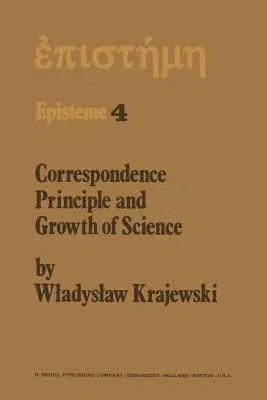W Krajewski
(Author)Correspondence Principle and Growth of Science (Softcover Reprint of the Original 1st 1977)Paperback - Softcover Reprint of the Original 1st 1977, 14 October 2011

Qty
1
Turbo
Ships in 2 - 3 days
In Stock
Free Delivery
Cash on Delivery
15 Days
Free Returns
Secure Checkout
Part of Series
Episteme
Print Length
138 pages
Language
English
Publisher
Springer
Date Published
14 Oct 2011
ISBN-10
940101180X
ISBN-13
9789401011808
Description
Product Details
Author:
Book Edition:
Softcover Reprint of the Original 1st 1977
Book Format:
Paperback
Country of Origin:
NL
Date Published:
14 October 2011
Dimensions:
23.39 x
15.6 x
0.86 cm
ISBN-10:
940101180X
ISBN-13:
9789401011808
Language:
English
Location:
Dordrecht
Pages:
138
Publisher:
Series:
Weight:
231.33 gm

